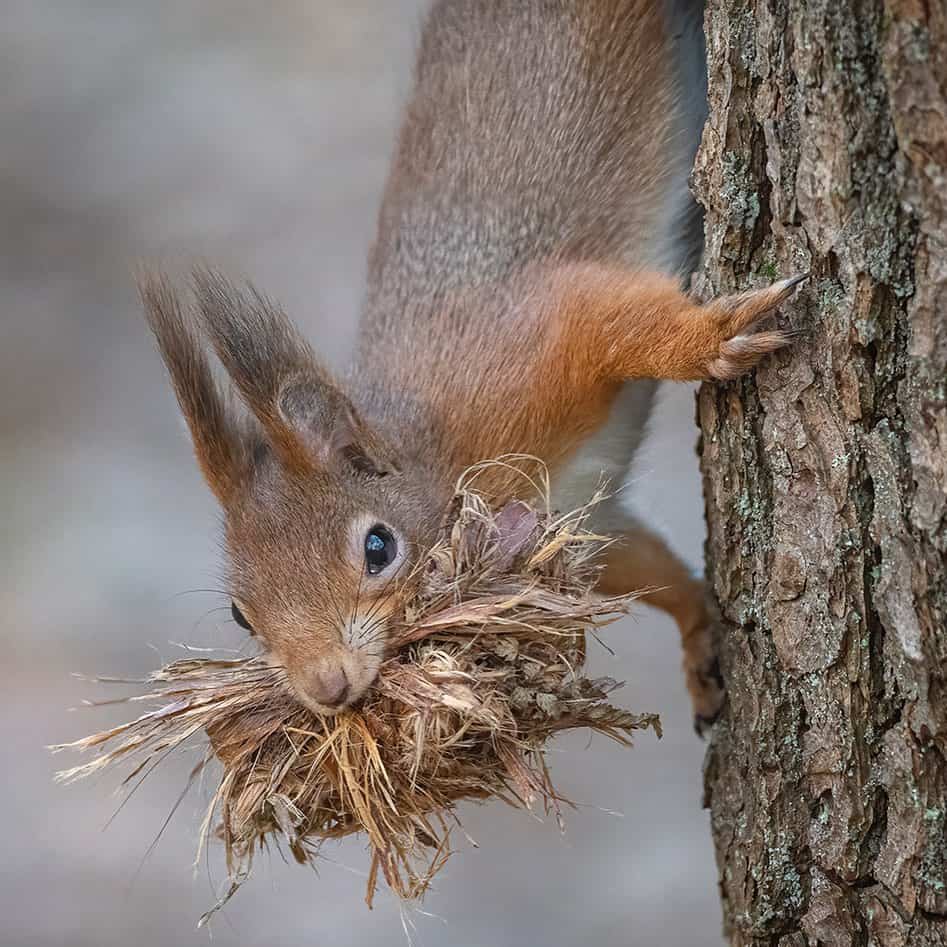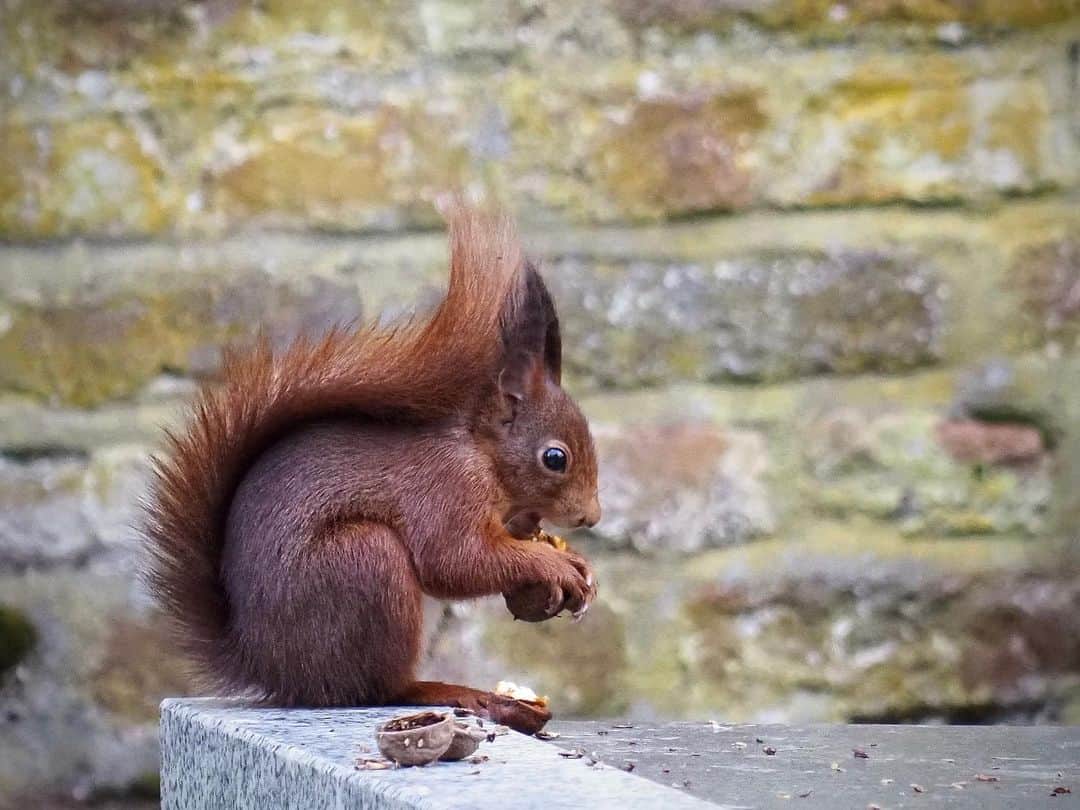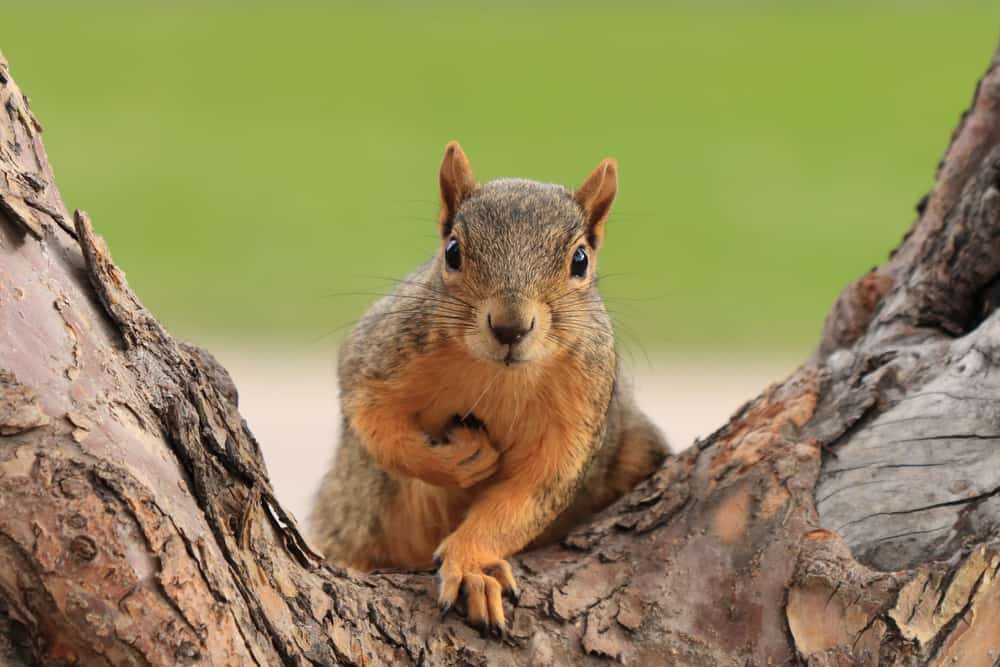Living in urban or suburban areas, we are used to the sounds we make ourselves or that are made by pets, cars, machines, and devices surrounding us. The palette of sounds we know includes the sounds of rain, wind, thunder, or birds in the parks that we cannot turn off.
Every other sound that does not belong to the ones listed fills us with discomfort and indicates that we inadvertently share our living space with uninvited guests!
Different animals, including small marsupials or rodents such as mice, raccoons, opossums, rats, and squirrels, often live under our roof without us even seeing them!
Sometimes, only various sounds, different from those we are used to, coming from the basements, attic, eaves, bathroom, garages, walls, and chimneys indicate that our home is also a desirable shelter for them.
Squirrel Vocalization

For most of us, a squirrel is a cute little animal with a flamboyant tail that we don’t associate with any special sound! Except for those who had the opportunity to share a home with this lovely little rodent, the vast majority would probably not know the answer to the question of what sounds squirrels make.
The reason may be that our encounters with this animal are generally short and are rarely accompanied by any sound signal. However, the truth is that the squirrel is a very vocal animal capable to produce many different sounds.
Like other mammals, squirrels use sound as a way of mutual communication or as a reaction to the environment. In other words, the type of sound they produce depends on the function it has to fulfill!
Therefore, the sounds that a squirrel uses to warn of danger are different from those that it uses to call its mates! Moreover, the sounds that a squirrel uses to warn of danger coming from the air are different from those it makes when it notices terrestrial predators such as foxes, cats, or dogs!
1. Squirrels Chirping
We start our review of the sounds that squirrels make with the more pleasant ones -chirping! Yes, squirrels do make a sound similar to chirping birds. You may have heard that noise in the attic or the vents and thought it was a bird, which you probably didn’t perceive as a call to the alarm!
But check it out next time, because instead of a bird, you might see an agitated squirrel making the sound! They make this sound when they warn other squirrels not to approach their territory or food.
So, although it does not sound belligerent, it is a sound that a squirrel makes while sitting and eating its meal, telling other squirrels and any other potential competition that it is not in the mood to leave your meal or share it with anyone!
2. Do Squirrels Growl?
Maybe the chirping sound fits our idea of a cute squirrel because it sounds pleasant just like a squirrel looks! But, on the contrary, this animal has sounds in its repertoire that you might not even expect!
Growling is one of those sounds that are quite difficult to associate with your favorite mischievous character from cartoons and picture books.
However, squirrels do make this deep guttural sound when they are in immediate danger! It serves as a warning sign and is followed by a change of attitude and quick aggressive movements!
3. Do Squirrels Bark?

This question may sound funny because barking is what we mainly associate with dogs! Yet the truth is that many other animals make a similar sound, including squirrels!
This loud, high-amplitude sound squirrels use as an alarm call in case of danger coming from the ground! If a squirrel in search of food came out of its hiding place in your attic and spotted a cat or a dog in the backyard, it will make this sound!
Namely, even though they are not territorial animals, they react to intruders in the neighborhood! The barking call is a warning to other squirrels to be careful as potential danger is nearby! It also serves as an attempt to frighten and deter intruders from approaching them!
4. Call of Crying Squirrel
Crying noises are usually made by young squirrels that are still dependent on their mother. It is usually a quiet, low sound that can turn into a whine and is made by hungry cubs when they call their mother or when they need her protection because they have noticed something that seems to be a danger.
So, if you hear a few squealing voices, there is a high probability that you will find a nest of little squirrels! Don’t forget that a squirrel gives birth to three to seven cubs twice a year!
However, a sound similar to crying can also be produced by adult squirrels! Sometimes it is a call made by males in battle and sometimes it is made by injured individuals.
In any case, don’t ignore this sound if you hear it! If it’s cubs, it’s better to remove them, so that several generations don’t spread around the house! If you do not want to solve this problem yourself, contact professionals for help!
5. Squirrel Squeak Call
A high-pitched squeak sound, usually at short, spaced intervals, is made by squirrels mainly as a warning to other individuals to move or feed in what they consider their territory. As we have already said, squirrels are not particularly territorial, especially not in the sense of aggressive defense, but they will still react to the appearance of competition, if nothing else, then, with this threatening call.
This sound is also characteristic of males during mating and serves to intimidate rivals. Namely, during the mating period, a female can attract up to ten males who will compete with each other in various ways, including this sound.
6. Squirrel Snoring
At the end of our review, we left one really special sound – snoring! Of course, most of us associate that sound with the state of deep relaxation that the body has in sleep. Scientists say that this sound is created by the passage of air over the relaxed tissue of the nasal or oral cavity and can be of different intensities.
Of course, the cautious and timid squirrel is not snoring in your attic because it has fallen into a sound sleep! These animals, which are often attacked by different predators, cannot afford the luxury of such relaxation!
Squirrels produce a sound similar to snoring when awake! Expelling the air simultaneously through the nose and mouth after a deep sigh is a sign of warning, anxiety, and alarm. This is the call a squirrel can make when it is caught in some kind of trap from which it cannot find its way out!
7. Night Sounds of Squirrels
All the sounds we mentioned squirrels produce during the daytime, because like us they are active during the day and sleep at night just like us.
However, Northern flying squirrels and southern flying squirrels, two native flying squirrel species of the United States, have an inverted biorhythm and are active at night!
Like many other nocturnal animals, they are much quieter than their daily active cousins, but they still use high-pitched chirping sounds to communicate with each other. These small animals also produce ultrasonic sounds that the human ear cannot register!
Other Noise Squirrels Make

The sounds squirrels make as a reaction to the environment or in mutual communication are only a part of the palette that suggests their presence. They are busy animals with noisy activities. Here are some of those sounds:
1. Rolling
Squirrels feed on nuts, which they tirelessly collect from spring to autumn and deposit in shelters that will provide sustenance during the winter. If they cannot carry the fruit in their teeth, they will roll it on the ground, and you will notice that sound.
2. Rustling
Squirrels are constantly moving, running, building a nest, nibbling, and each activity produces a rustling that shows that someone very active is living in your attic!
3. Scratching
Squirrels have strong, sharp front claws that help them quickly and deftly climb trees and many other vertical surfaces. Although they move relatively quietly due to their small body mass, you may still hear light running or scratching sounds on the ceiling boards.
Conclusion
Squirrels, no matter how irresistible they look, especially when they sit on their hind legs and eat nuts, are wild animals that have no place in our home.
Don’t be fooled by its cute appearance – a squirrel is a nuisance that can significantly destroy your property! They can damage roof and attic insulation, chew and gnaw cables, bite, and scratch wooden furniture, or tear upholstered parts!
Moreover, their urine or feces may contain dangerous bacteria such as salmonella. Fleas and ticks from their fur can spread around our household! Therefore, the next time you hear in your home some of the mentioned sounds, check to see if it is a playful squirrel!
And, of course, if you have experience with these cute pests, we would love it if you could get in touch and share it with us!
